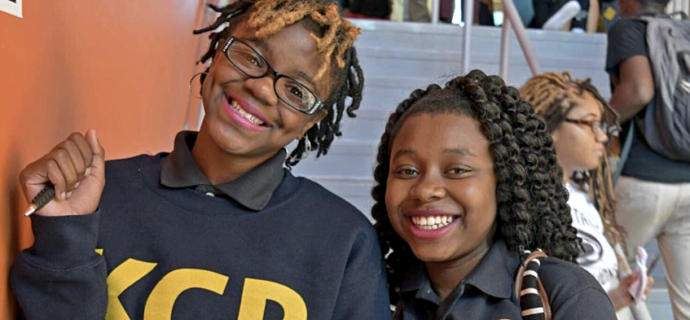KIPP Students Know What They Need to Thrive in Remote Learning
ByAndhra Lutz
On July 30th, the Mayor of DC, Muriel Bowser, announced that D.C. schools would begin the year remotely. It was clearly time to take the lessons learned and get better. Our leaders went to work. They reviewed and revised curriculum, made great decisions about material and tech distribution for all students, conducted empathy interviews with teaching staff, surveyed staff and families, and used this feedback to craft a plan for summer professional development for our 1,150 staff members.
However, as we crafted a plan for the start of the year, we realized a critical voice was missing in our planning. Our students.
For two weeks, an informal research team comprised of three school leaders, a data geek, and a wise and patient Ph.D. student, called our students, asked them questions, recorded their answers, and came up with concrete recommendations based on what we heard from the students.
We began with the 55 students in our eighth grades who had received two or more incompletes because we were worried about them and about losing them in the transition between middle school and high school. We called all of them and were able to interview 35 students. Here’s what they shared with us.
Students feel a sense of loss. “I felt sad because I want to be able to communicate with people.” They are grieving the loss of school, of routines, of social interactions with peers, and of their former lives. Even students who reported initial elation at the prospect of remote learning became disenchanted after a few months. “I thought it was cool at first. Then, I started to miss everybody and wanted to go back.”
They struggle with the remote learning schedule. Some students reported having a hard time creating individual schedules during the initial remote learning period when the majority of our instruction was asynchronous. Others shared that they struggled with synchronous classes because of child-care, chores or sleep schedules. “The hardest part was balancing my siblings’ work and my work and making sure they ate. I would do my stuff first. Then I would make sure they ate and they did their work.”
Students crave real-time, interactive academic support. Many of the students spoke about not being able to ask questions during synchronous classes, or not understanding the classwork. “It didn’t make as much sense as it would in school. In school I can get more help.”
Read the full article here.
